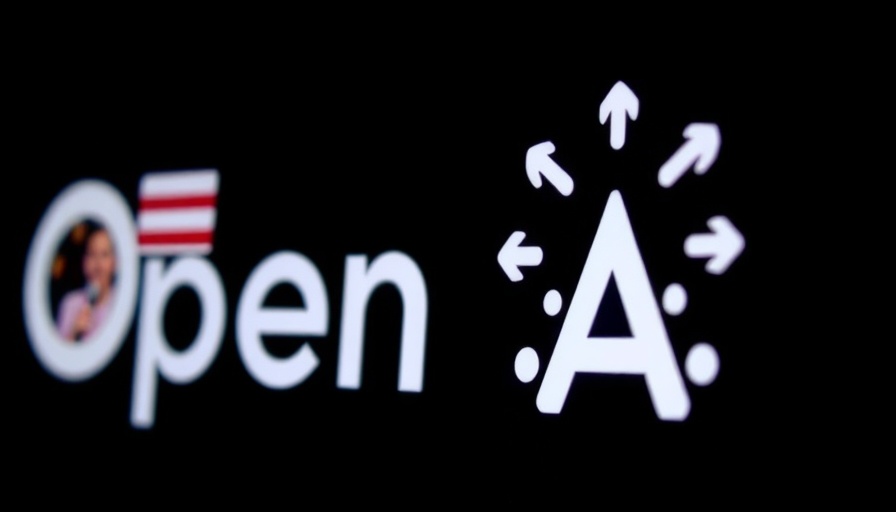
The Showdown: Musk vs. OpenAI
As the year draws to a close, anticipation builds for a legal clash that could shape the future of artificial intelligence. Elon Musk and OpenAI, the AI startup he co-founded, are gearing up for a trial set to commence in December. This expedited trial, aimed at addressing Musk's lawsuit against OpenAI’s transition to a for-profit model, highlights significant tensions between the billionaire entrepreneur and the company’s current leadership under Sam Altman.
Background: From Founding to Friction
Musk and Altman co-founded OpenAI in 2015 with a mission dedicated to advancing digital intelligence in a way that would benefit humanity as a whole. However, tensions arose after Musk exited the organization in 2018, citing concerns about OpenAI’s commercialization and its alignment with corporate interests, particularly following a lucrative partnership with Microsoft.
Fast forward to 2024, and Musk’s frustrations came to a head with a lawsuit accusing OpenAI of straying from its nonprofit roots. He argued that the shift towards profitability contradicts the organization's founding ideals. OpenAI has refuted Musk's claims, suggesting that his motivations may be less about ethics and more about positioning xAI, his own AI venture, for a competitive advantage.
The Trial: Critical Questions on AI’s Future
The upcoming trial can potentially determine not only the fate of OpenAI but also influence the broader AI landscape. At the heart of the courtroom battle is a significant question: Should organizations like OpenAI prioritize their original nonprofit missions over the financial necessities of competing in a rapidly growing and expensive AI market?
The court's upcoming decision on whether the case will be heard by a jury or just a judge could also alter the perceptions and strategies of other tech organizations eyeing similar shifts. The implications could be profound, impacting how AI companies structure themselves to secure investment while adhering to their ethical claims.
OpenAI’s Strategic Movements
As the trial approaches, OpenAI is not standing still. Recently, it has submitted several policy proposals to the White House, aiming to enhance America's competitiveness in AI while requesting clearer guidelines from the federal government on AI regulations. This of course brings the question of how federal regulations should tie in with private interests and AI development—an ongoing debate in the industry.
OpenAI’s push for federal oversight illustrates its efforts to shape a regulatory environment that balances innovation and public safety. By involving governmental guidance, the organization seeks to ensure that as AI technologies evolve, they do so responsibly.
The Larger Context: AI Regulation Debate
The Musk-OpenAI trial occurs within a broader context of increasing scrutiny over AI technologies and their implications for society. Various stakeholders, from policymakers to industry leaders, are grappling with the ethical dilemmas posed by rapidly advancing AI systems.
This legal battle emphasizes a crucial aspect of the AI discussion: how to navigate profit motives while upholding moral responsibilities. As AI becomes more integrated into everyday life, ensuring that its advancements benefit society as a whole will be of utmost importance.
Looking Ahead: Potential Outcomes
The outcomes of the trial will undoubtedly ripple through the tech industry and beyond. Should Musk win, it could stifle OpenAI’s growth and influence the trajectories of similar organizations, potentially prompting a reevaluation of profit-driven AI businesses. On the other hand, if OpenAI prevails, it would cement their for-profit model as a blueprint for future AI ventures.
This case illustrates the ongoing struggle between ideals and market reality in the tech world. As more companies strive for innovation and growth, finding the harmony between ethical considerations and financial viability remains a critical challenge. The December trial will be a decisive moment not just for Musk and OpenAI, but for the entire AI landscape.
Final Thoughts: The Importance of Ethical AI
As we gear up for what promises to be a landmark case, the tech community and general public should remain engaged in dialogues surrounding the ethical frameworks guiding AI development. Whether through legal disputes or regulatory changes, the push for responsible AI is more relevant than ever. The outcomes of Musk vs. OpenAI may well shape standards and practices in AI for years to come, reminding us that technology must evolve hand in hand with societal values.
For those interested in the evolution of AI and its impacts on society, staying informed about this trial and related legal proceedings will be essential as it unfolds.
 Add Row
Add Row  Add
Add 




 Add Row
Add Row  Add
Add 

Write A Comment